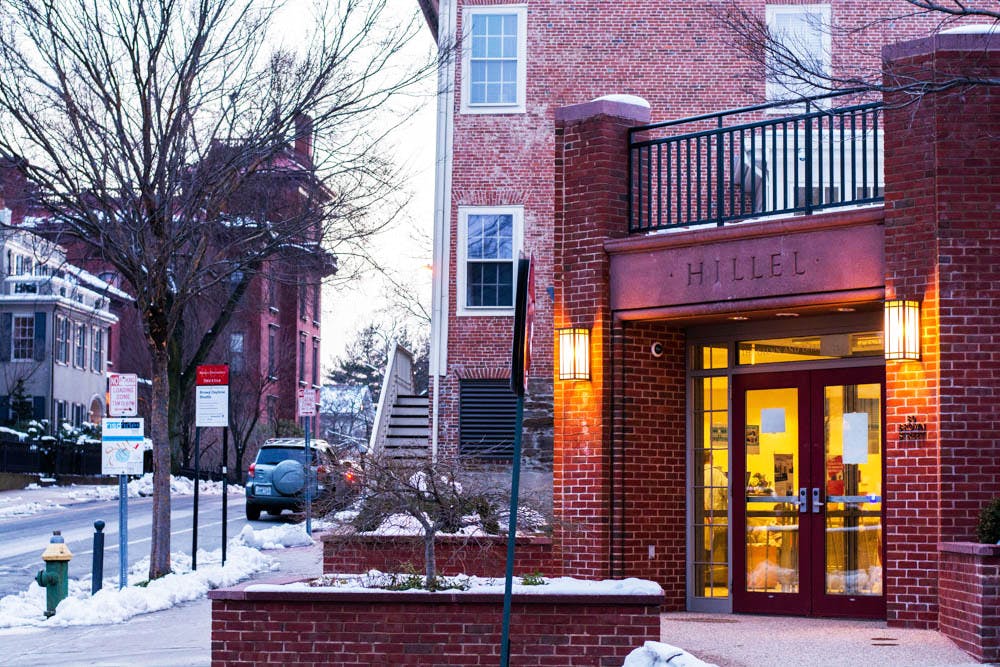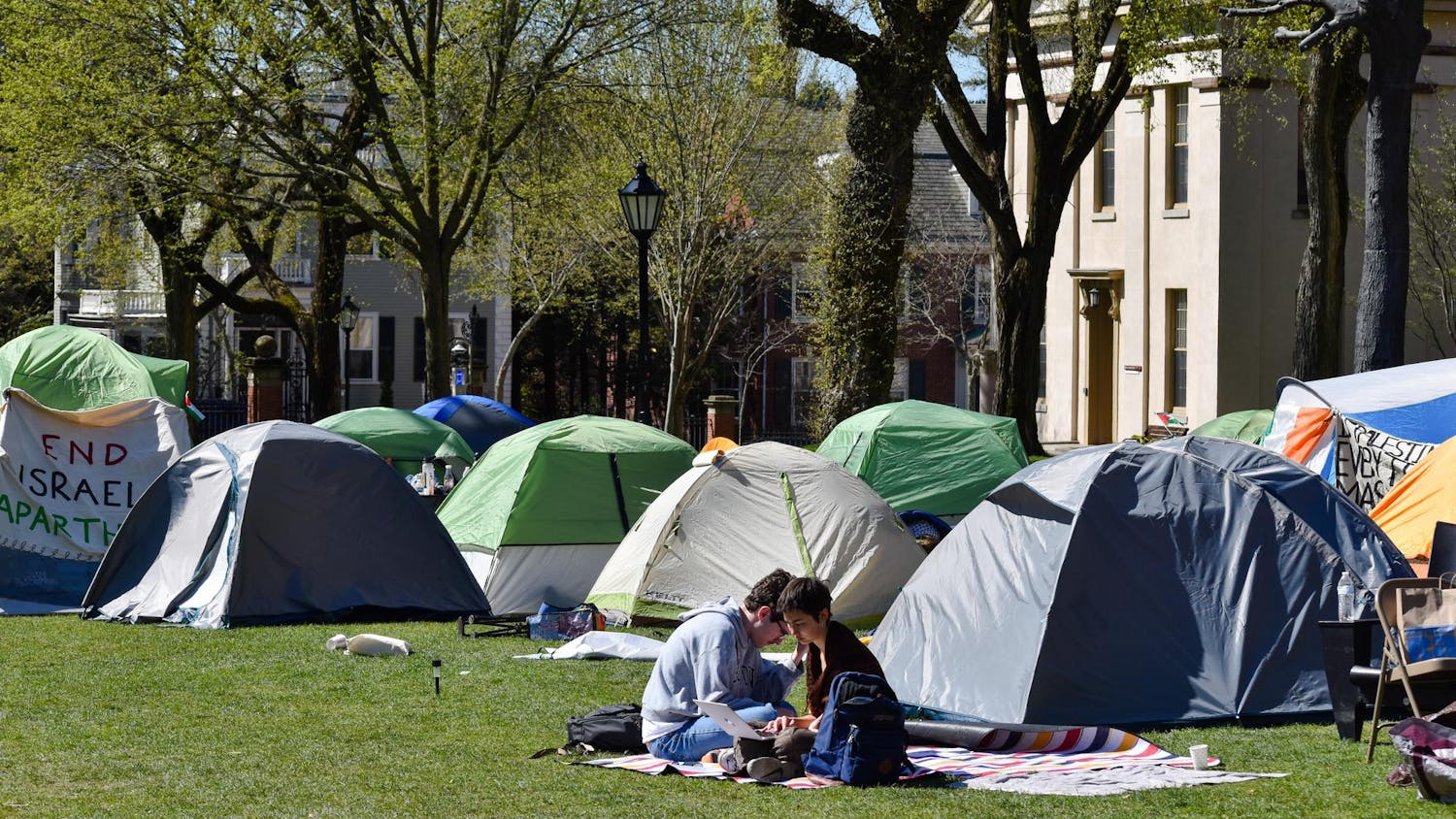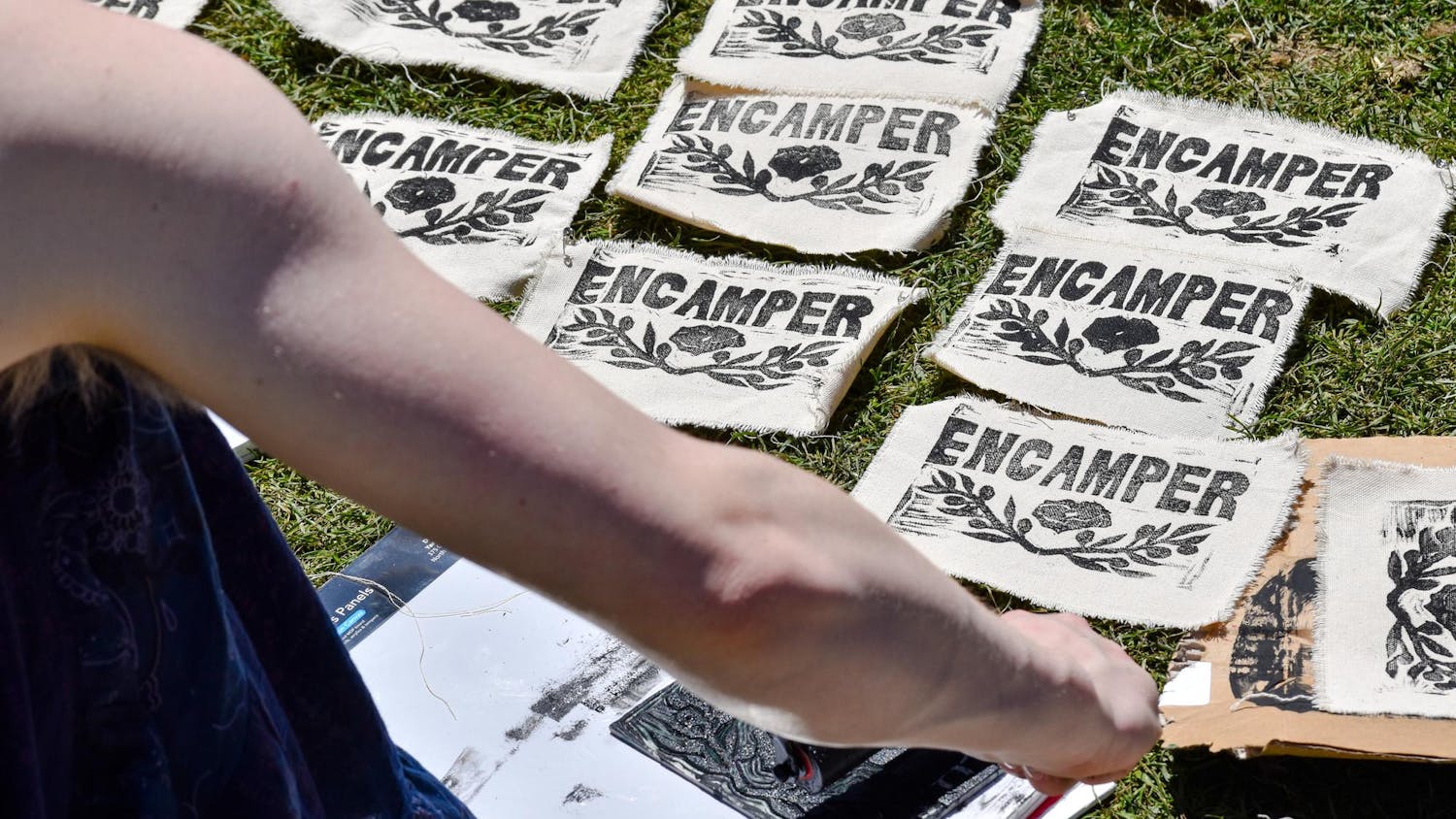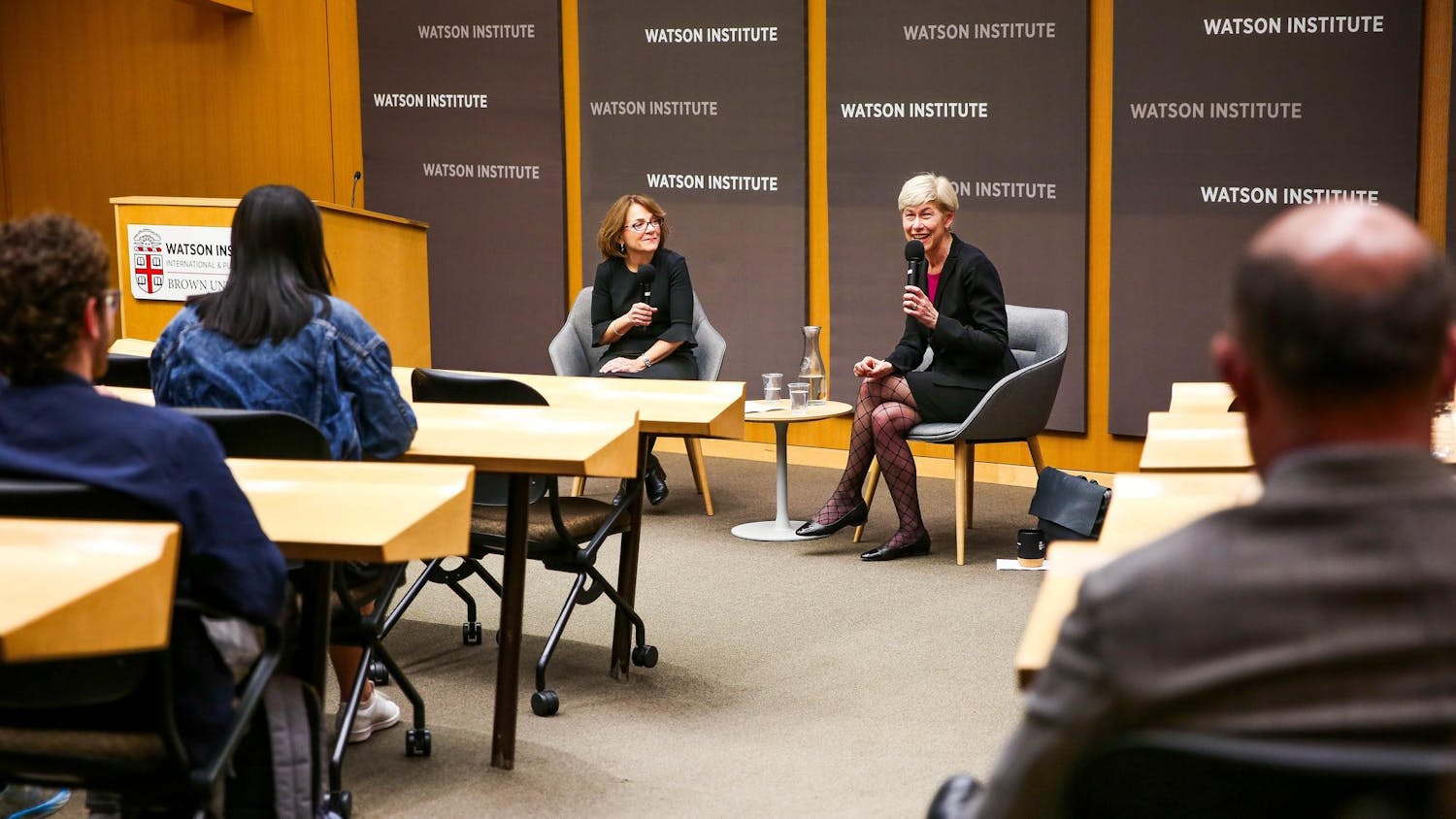This is the second of a two-part series that explores how students and faculty members engage with the Israel-Palestine conflict in their work and social lives on campus.
Last semester, a petition asking Janet Mock to disaffiliate her talk from Brown/RISD Hillel characterized Hillel as a pro-Israel space.
Brown/RISD Hillel Director Marshall Einhorn said he believes the term ‘pro-Israel’ is too reductive to fully encapsulate the nuance with which Brown/RISD Hillel engages with Israel on College Hill. Brown/RISD Hillel’s website describes it as the “center for Jewish life on campus,” and in that capacity, “Hillel has a connection to Israel as the Jewish homeland, as a place of deep meaning to the Jewish people,” he said.
Brown/RISD Hillel is not a center set up through the University but rather a chapter of Hillel International. Hillel International states that its member Hillels “will not partner with, house or host organizations, groups or speakers that as a matter of policy or practice” deny Israel’s right to exist, “delegitimize, demonize or apply a double standard to Israel” or support boycott, divestment and sanctions on Israel, according to Hillel International’s website.
Several student groups fall under Brown/RISD Hillel’s umbrella and receive funding and support from it, which means those groups are also affected by any regulations to which Brown/RISD Hillel is subject.
“Hillel unequivocally supports the continued existence of the state of Israel: For us, however, this support can include critique as well,” reads Brown/RISD Hillel’s website.
Not every student involved in Brown/RISD Hillel engages with Israel, and many of those who do so approach Israel through a critical lens, Einhorn said.
“Hillel is not just a space or a building. It’s a community,” he said. “So much of the work we do happens in coffee shops, as well as on campus,” he said, adding that students have considerable freedom in deciding what they want Brown/RISD Hillel to stand for.
But there is no clear consensus among the student groups housed within the organization — or the Brown/RISD Hillel Board of Directors — as to what the organization should espouse.
Officially, J Street U Brown, one group under the Brown/RISD Hillel umbrella, supports a two-state solution and considers itself anti-occupation, pro-Israel, pro-Palestinian and pro-peace, said current J Street U Brown co-chair Andrew Marmor ’18. The group considers a multiplicity of narratives from the many parties involved in the Israel-Palestine conflict, he added.
As a result of its Brown/RISD Hillel affiliation, JSUB’s events are co-sponsored by Brown/RISD Hillel. This sponsorship takes the form of assistance with funding and marketing, Marmor said.
This Brown/RISD Hillel affiliation also means that Brown/RISD Hillel approves JSUB programming, which has led to tension in the past when the group has come up against Hillel International’s Standards of Partnership, said Harpo Jaeger ’14.5, co-founder of JSUB.
The Standards of Partnership guidelines are interpreted by the Brown/RISD Hillel Board of Directors, Jaeger said.
Joe Hollander ’81, president of the Brown/RISD Hillel’s Board of Directors, did not to respond to multiple requests for comment.
When Jaeger was working to bring a representative of the Palestinian Liberation Organization to Brown, he was asked to structure the event such that equal time would be given to a pro-Israel speaker, he said. Jaeger referred to the idea as “ridiculous,” adding that a representative of the PLO had as much of a right to speak on his own terms as an Israeli ambassador does.
After a few “false starts,” JSUB eventually succeeded in bringing Maen Rashid Areikat, chief representative of the Palestinian government to the United States and to campus to deliver a talk at Metcalf Auditorium with the co-sponsorship of Brown/RISD Hillel.
In May, Sophie Kasakove ’17.5 co-organized a screening of three short films produced by the Israeli nonprofit Zochrot, which seeks to “educate Jewish Israelis about the Palestinian understanding of the Nakba,” she said. The Nakba is the Arabic term for the displacement of Palestinians upon the founding of Israel in 1948. Originally, the event was to be held in Brown/RISD Hillel and was to be co-sponsored by a broad coalition of Brown Jewish groups housed in the space.
Two days before the screening, one of the co-sponsoring groups, Brown Students for Israel, withdrew its support for the event, according to a statement released by the event’s organizers. In the absence of unanimous student group support, Brown/RISD Hillel withdrew its endorsement of the event, too, the statement said.
Hillel International later released a statement deeming the event “inconsistent with Hillel’s mission and values,” the Forward reported.
Einhorn characterized the sequence of events surrounding the Nakba screening as “disappointing” because “students had worked over the course of the semester to plan the event,” and their collective vision very nearly came to fruition.
About 70 students gathered to watch the films at Brown/RISD Hillel despite the lack of sponsorship from Brown/RISD Hillel, according to a statement released by the event’s organizers.
BSI’s decision to withdraw support for the event centered on the role of Hillel on campus.
Kasakove said the event was about introducing diverse narratives to Hillel. “Conversations around the Palestinian right of return, (the) bi-national state and other narratives, which tend to be associated with … BDS” are generally not addressed adequately in Brown/RISD Hillel programing, she said.
“It’s important to us that Jews have this conversation — but not only just have this conversation over coffee, but in the space designated for Jews on campus in the space where Jews are investing their money and energy,” she added.
But President of Brown Students for Israel Ben Gladstone ’18 said BSI withdrew its support for the event based on the event’s location in Brown/RISD Hillel. “We were and are interested in having critical conversations about Israel,” he said. But “the integrity of (Brown/RISD) Hillel as a physical space is very important to us,” Gladstone said, explaining that in his view Brown/RISD Hillel should serve as a safe space for Zionists on campus in addition to its role as the center for Jewish life.
Jewish students who oppose Israel’s right to exist “are also free to express their anti-Zionism in history classes, university programs, existing student groups and public spaces on campus in ways that Zionist students — even those of us who are frequently critical of the policies of the current Israeli government — often are not,” Gladstone wrote in an op-ed he co-authored with Jared Samilow ’19 in the Forward.
Gladstone said that a safe space for Zionism “allows for students to speak against dominant narratives and actually, in the long term, serves to encourage free speech.”
Gladstone added that he believes Brown/RISD Hillel should be the safe space for Zionists on campus because Hillels exist “to protect and be a space for Jewish students to gather in a safe space.” He believes that “today, the targeting of Jews is geared towards Zionism and sometimes goes beyond Zionist students.” In the incident of the Janet Mock petition, Jewish students involved in a Hillel-affiliated organization were immediately considered to be furthering Zionism irrespective of their personal beliefs on Israel, Gladstone said.
Kasakove’s understanding of her Jewishness is inextricably linked to her questioning of Zionism, she said. “Being critical of Israel, questioning not only the policies but also the ideology behind it is really critical to my Jewish identity,” Kasakove said. “If that’s a part of what Judaism is to me, then I want to be able to do that in a Jewish space, and I should be included in the Jewish space because I am Jewish. I connect much more deeply and much more strongly to that than to ritual.”
Kasakove added that people have questioned her Jewish identity based on her views on Zionism in the past. “I think there are many Jews on this campus who are not Zionists and that Hillel needs to make space for everyone — anti-Zionists, non-Zionists, Zionists — without discriminating that anyone is more validly Jewish than the other,” she added.
Correction: A previous version of this article misstated Harpo Jaeger's class year. He is a part of the class of 2014.5, not the class of 2015. The Herald regrets the error.





